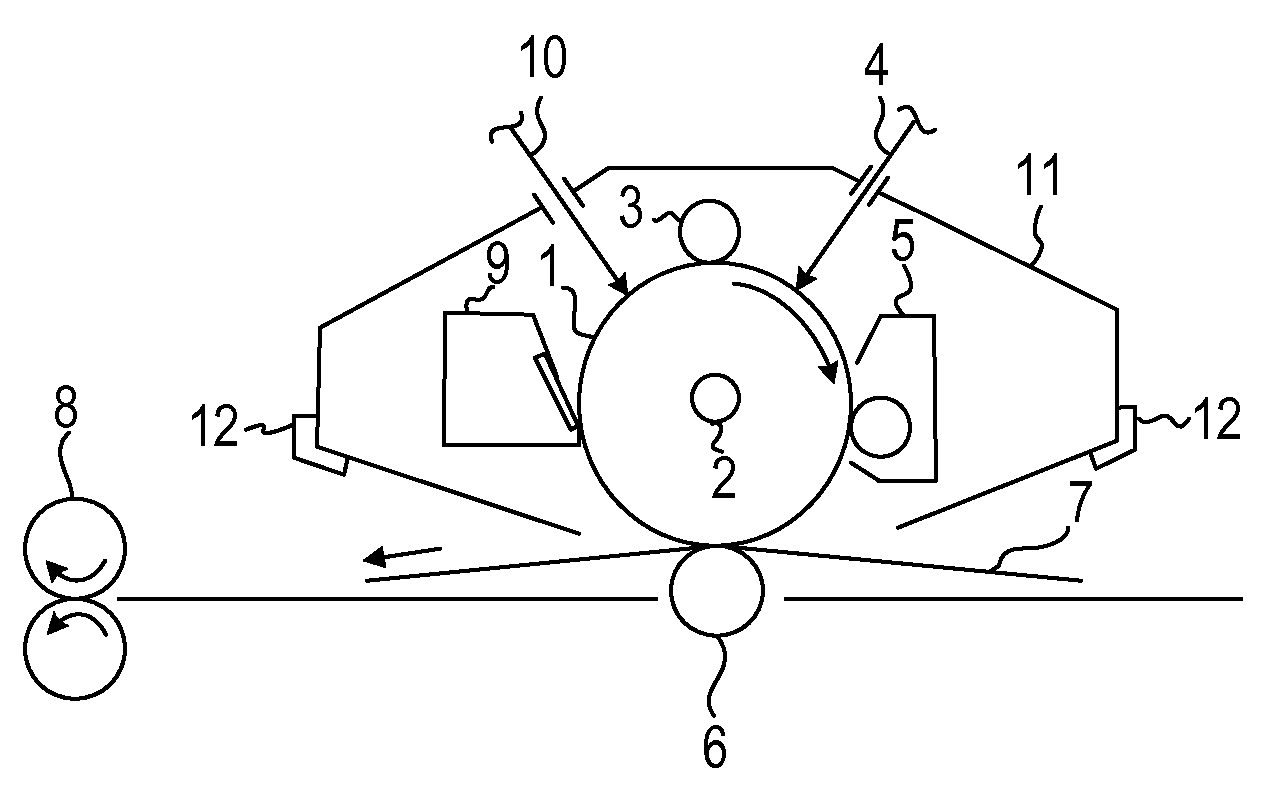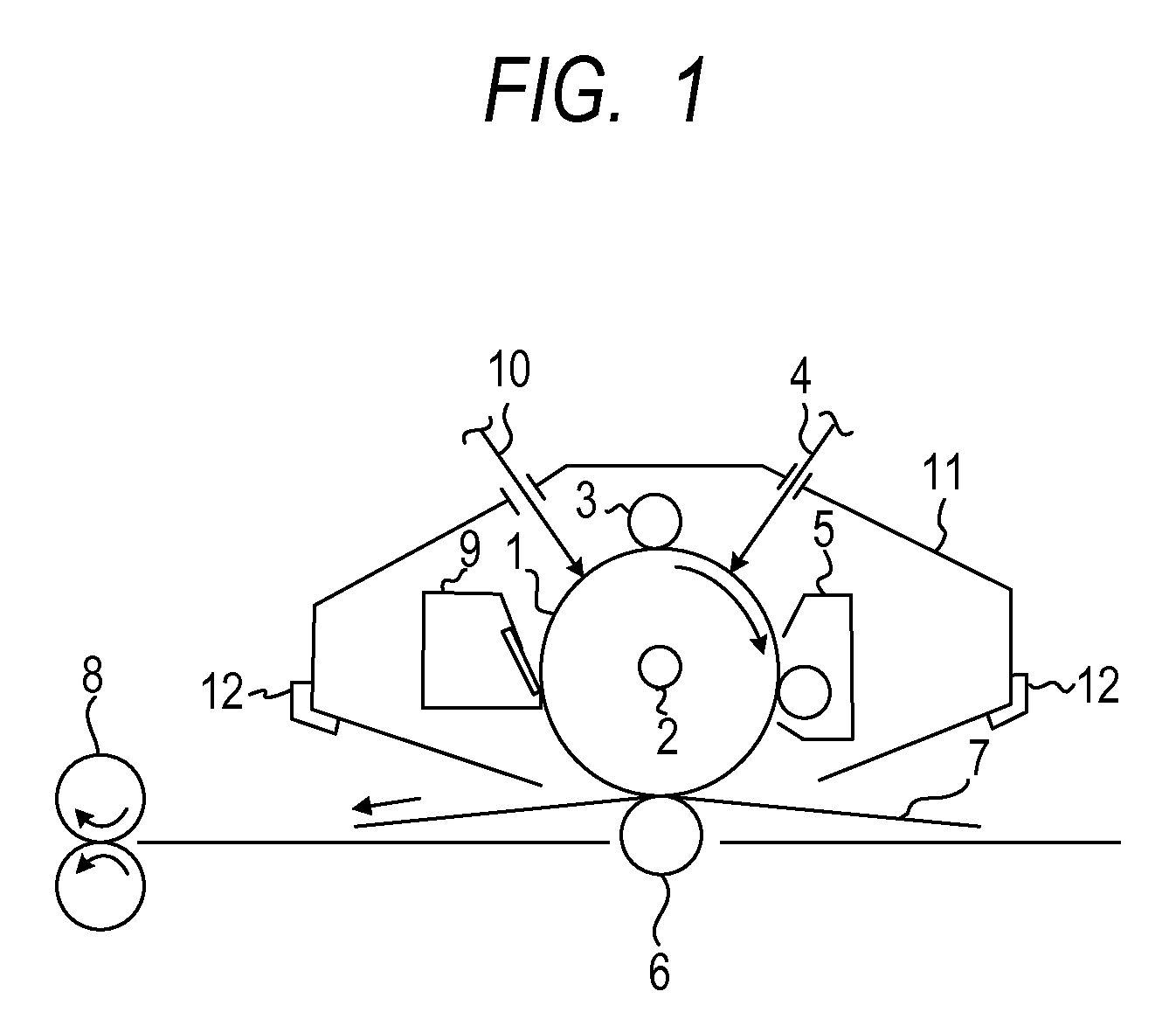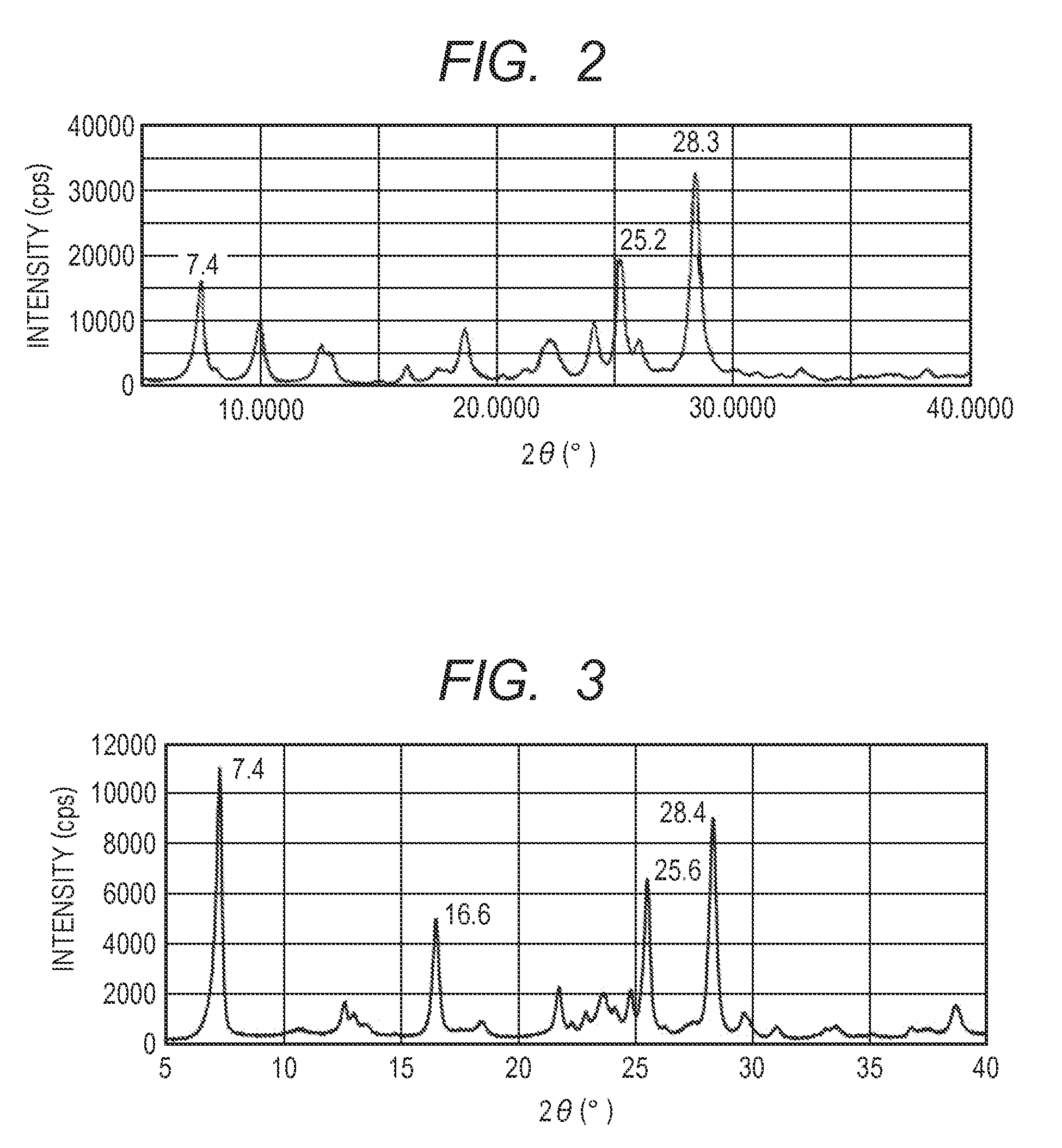Electrophotographic photosensitive member, process cartridge and electrophotographic apparatus
a photosensitive member and electrophotography technology, applied in electrography/magnetography, optics, instruments, etc., can solve problems such as fogging, image defects, black spots, etc., and achieve the effect of suppressing the amount of toner, preventing fogging, and improving image quality
- Summary
- Abstract
- Description
- Claims
- Application Information
AI Technical Summary
Benefits of technology
Problems solved by technology
Method used
Image
Examples
synthesis example 1
[0183]Under a nitrogen flow atmosphere, 5.46 parts of phthalonitrile and 45 parts of α-chloronaphthalene were loaded to a reaction vessel and thereafter heated to a temperature of 30° C., and thereafter the temperature was kept. Next, 3.75 parts of gallium trichloride was loaded thereto at the temperature (30° C.). The moisture value of the mixed liquid in loading was 150 ppm. Thereafter, the temperature was raised to 200° C. Next, under a nitrogen flow atmosphere, the resultant was subjected to a reaction at a temperature of 200° C. for 4.5 hours and thereafter cooled, and when the temperature reached 150° C., the resultant was filtered to provide a product. The resulting product by filtration was dispersed in and washed with N,N-dimethylformamide at a temperature of 140° C. for 2 hours, and thereafter the resultant was filtered. The resulting product by filtration was washed with methanol, and thereafter dried to provide 4.65 parts of a chlorogallium phthalocyanine pigment (yield:...
synthesis example 2
[0184]The chlorogallium phthalocyanine pigment obtained in Synthesis Example 1 (4.65 parts) was dissolved in 139.5 parts of concentrated sulfuric acid at a temperature of 10° C., the resulting solution was dropped in 620 parts of ice water under stirring, for reprecipitation, and filtered using a filter press. The resulting wet cake (product by filtration) was dispersed in and washed with 2% ammonia water, and thereafter filtered using a filter press. Next, the resulting wet cake (product by filtration) was dispersed in and washed with ion-exchange water, thereafter filtration using a filter press was repeated three times, and thereafter a hydroxygallium phthalocyanine pigment (hydrous hydroxygallium phthalocyanine pigment) having a solid content of 23% was obtained (acid pasting treatment).
[0185]Next, 6.6 kg of the resulting hydroxygallium phthalocyanine pigment (hydrous hydroxygallium phthalocyanine pigment) was dried using a Hyper-Dry dryer (product name: HD-06R, frequency (oscil...
example 1-1
[0192]The hydroxygallium phthalocyanine obtained in Synthesis Example 2 (0.5 parts) and 10 parts of N,N-dimethylformamide were subjected to a milling treatment by a ball mill together with 20 parts of glass beads having a diameter of 0.8 mm under conditions of room temperature (23° C.) and 120 rpm for 400 hours. A hydroxygallium phthalocyanine crystal was taken out from such a dispersion by using N,N-dimethylformamide, and filtration was conducted and a filter was sufficiently washed with tetrahydrofuran. A product taken out by filtration was dried under vacuum to provide 0.45 parts of a hydroxygallium phthalocyanine crystal. The powder X-ray diffraction diagram of the resulting crystal is illustrated in FIG. 2.
[0193]It was confirmed by NMR measurement that the content of N,N-dimethylformamide relative to the hydroxygallium phthalocyanine in the hydroxygallium phthalocyanine crystal obtained in the present Example was 1.4% by mass in terms of the ratio of proton.
PUM
| Property | Measurement | Unit |
|---|---|---|
| dipole moment | aaaaa | aaaaa |
| emission wavelength | aaaaa | aaaaa |
| Bragg angles 2θ | aaaaa | aaaaa |
Abstract
Description
Claims
Application Information
 Login to View More
Login to View More - R&D
- Intellectual Property
- Life Sciences
- Materials
- Tech Scout
- Unparalleled Data Quality
- Higher Quality Content
- 60% Fewer Hallucinations
Browse by: Latest US Patents, China's latest patents, Technical Efficacy Thesaurus, Application Domain, Technology Topic, Popular Technical Reports.
© 2025 PatSnap. All rights reserved.Legal|Privacy policy|Modern Slavery Act Transparency Statement|Sitemap|About US| Contact US: help@patsnap.com



